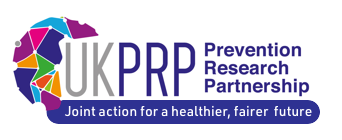Three major research projects have won support from a £50 million-plus funding partnership.
The UK Prevention Research Partnership (UKPRP) is to invest £19 million-plus over five years in three successful consortia that aim to understand and influence social, economic and environmental factors that affect health. UKPRP is a group of 12 funders including UK Research and Innovation councils, charities, and UK health and social care departments. The new awards follow a £25 million-plus investment in eight similar projects made by the partnership in 2019.
GroundsWell: health impacts of urban spaces
GroundsWell: community-engaged and data-informed systems transformation of urban green and blue space for population health is a successful consortium led by:
- Dr Ruth Hunter, Queen’s University Belfast
- Professor Ruth Jepson, University of Edinburgh
- Professor Sarah Rodgers, University of Liverpool.
The group of academics, practitioners, charities and industry will look at areas such as parks, woodlands, lakes and beaches in Belfast, Edinburgh and Liverpool to see how natural environments in urban spaces could be better designed, managed and used to improve health and reduce health inequalities.
Kailo: improving adolescent mental health
Kailo, a systemic approach to improving adolescent mental health is a successful consortium led by Professor Peter Fonagy, of University College London.
The group of leading scientists, designers, practitioners and community activists will take a radically different approach to adolescent mental health based around a framework called ‘Kailo’, meaning connected or whole.
Activities will take place initially in two different areas, densely populated and diverse Newham in East London and the large rural area of North Devon.
VISION: violence and its impact on health
The third successful consortium, Violence, Health and Society: VISION, is led by Professor Sylvia Walby, City University of London.
The partners include academics, professionals and practitioners who will improve the measurement and analysis of data on violence. They will look at how violence causes harm to health, especially mental health, and try to identify the efforts to reduce violence that have the biggest impact.
Non-communicable diseases cause most deaths
UKPRP supports multidisciplinary teams looking at ways to prevent non-communicable diseases such as heart disease, poor mental health, obesity, cancer and diabetes.
Non-communicable diseases make up the majority of illnesses in the UK and account for an estimated 89 per cent of all deaths. The COVID-19 pandemic has shone a light on the existing poor health and health inequalities that left parts of the UK vulnerable to the virus.
Tackling factors behind non-communicable diseases can reduce health inequalities and the burden of disease and help people to lead longer and healthier lives. The work demands a wide range of expertise.
The UKPRP is funded by:
- British Heart Foundation
- Cancer Research UK (funder of GroundsWell only)
- Chief Scientist Office of the Scottish Government Health and Social Care Directorates
- Engineering and Physical Sciences Research Council
- Economic and Social Research Council
- Health and Care Research Wales, Welsh Government
- Health and Social Care Research and Development Division (Public Health Agency, Northern Ireland)
- Medical Research Council
- National Institute for Health Research
- Natural Environment Research Council
- Health Foundation
- Wellcome.
They came together to fund projects looking at the social, economic and environmental factors behind disease because they recognised that no funder on their own had the resources or expertise to address them.
Consortia will deliver real health benefits for people
Professor Kevin Fenton, London Regional Director for Public Health England and Chair of the UKPRP Scientific Advisory Board, said:
“UKPRP is an important and timely programme that we need to address health inequalities and prevent the onset of non-communicable disease.
The projects funded under this programme are pushing the boundaries of prevention research by taking multidisciplinary approaches to addressing the complexities of population health, with the aim of improving people’s lives and health.
As we look to build back fairer from the pandemic, the creation of healthy communities and places is a key priority.”
Further details of the awards are available under What we fund.












